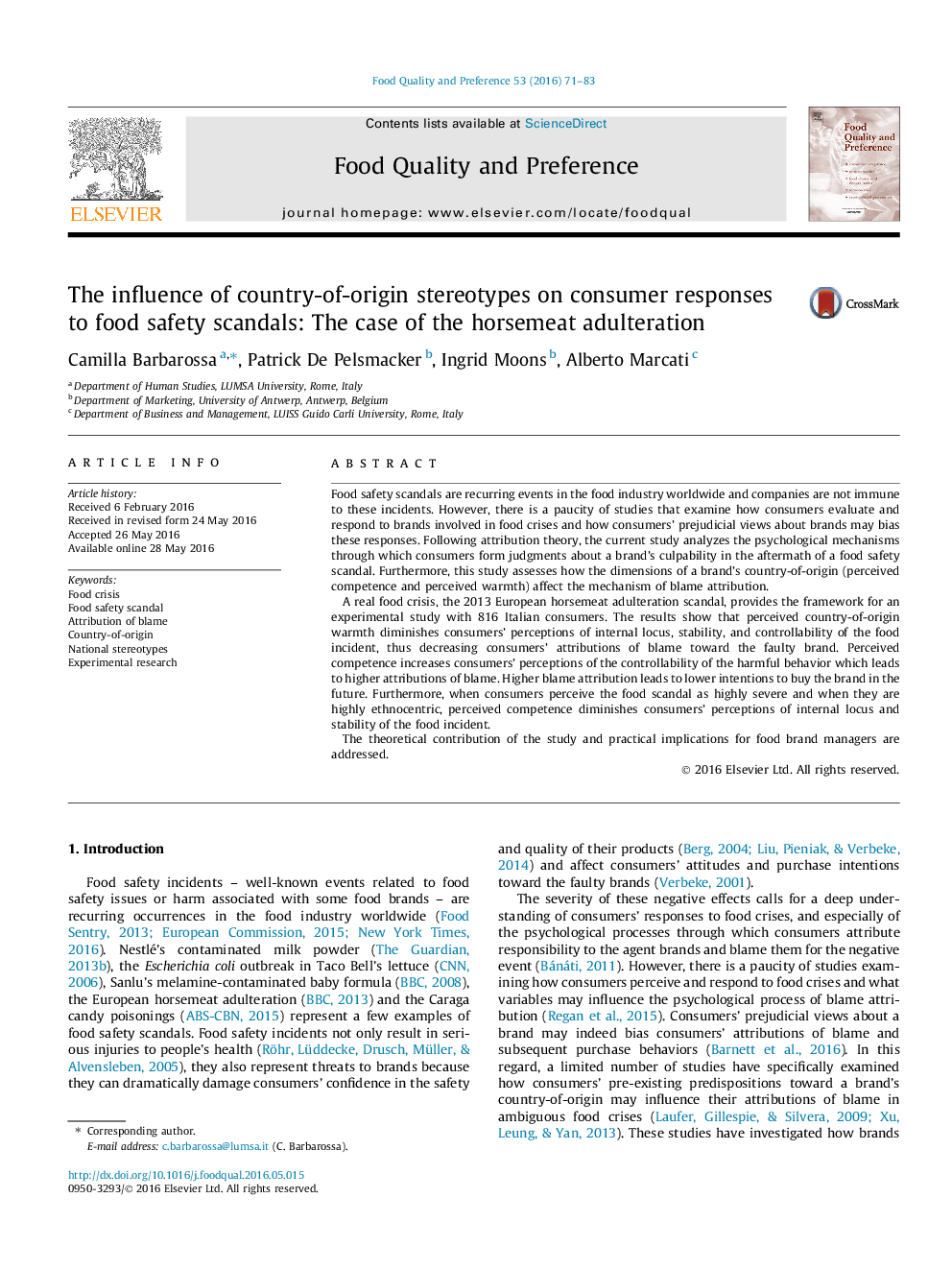| کد مقاله | کد نشریه | سال انتشار | مقاله انگلیسی | نسخه تمام متن |
|---|---|---|---|---|
| 4316885 | 1613146 | 2016 | 13 صفحه PDF | دانلود رایگان |
• COO stereotypes affect consumer attributions of blame toward brands in food scandals.
• COO warmth diminishes perceptions of internal locus, stability, and controllability of the food incident.
• COO competence increases perceptions of the controllability of the food scandal.
• Higher blame attribution leads to lower intentions to buy the brand.
• Consumer ethnocentrism and the severity of the food scandal moderate these effects.
Food safety scandals are recurring events in the food industry worldwide and companies are not immune to these incidents. However, there is a paucity of studies that examine how consumers evaluate and respond to brands involved in food crises and how consumers’ prejudicial views about brands may bias these responses. Following attribution theory, the current study analyzes the psychological mechanisms through which consumers form judgments about a brand’s culpability in the aftermath of a food safety scandal. Furthermore, this study assesses how the dimensions of a brand’s country-of-origin (perceived competence and perceived warmth) affect the mechanism of blame attribution.A real food crisis, the 2013 European horsemeat adulteration scandal, provides the framework for an experimental study with 816 Italian consumers. The results show that perceived country-of-origin warmth diminishes consumers’ perceptions of internal locus, stability, and controllability of the food incident, thus decreasing consumers’ attributions of blame toward the faulty brand. Perceived competence increases consumers’ perceptions of the controllability of the harmful behavior which leads to higher attributions of blame. Higher blame attribution leads to lower intentions to buy the brand in the future. Furthermore, when consumers perceive the food scandal as highly severe and when they are highly ethnocentric, perceived competence diminishes consumers’ perceptions of internal locus and stability of the food incident.The theoretical contribution of the study and practical implications for food brand managers are addressed.
Journal: Food Quality and Preference - Volume 53, October 2016, Pages 71–83
